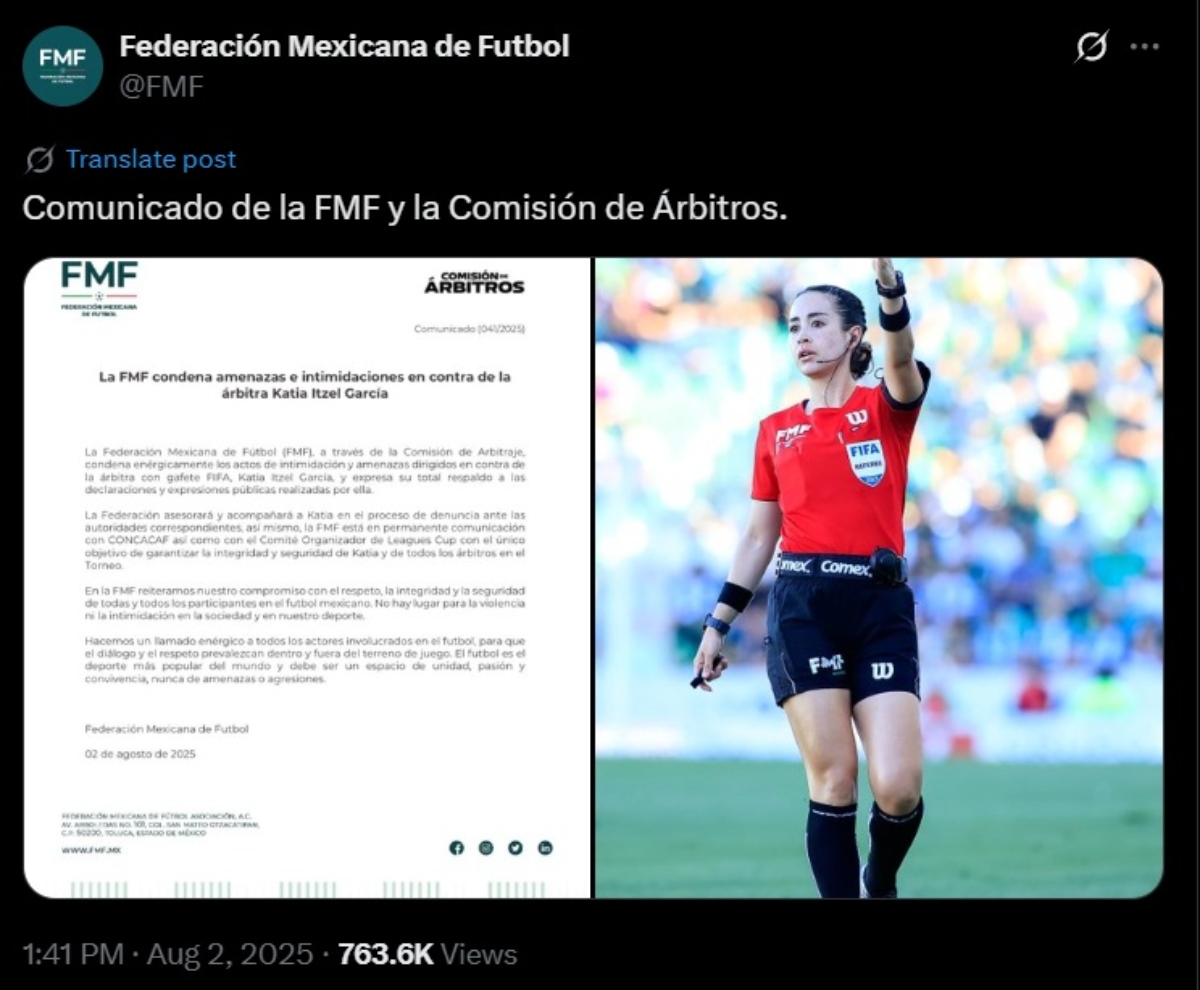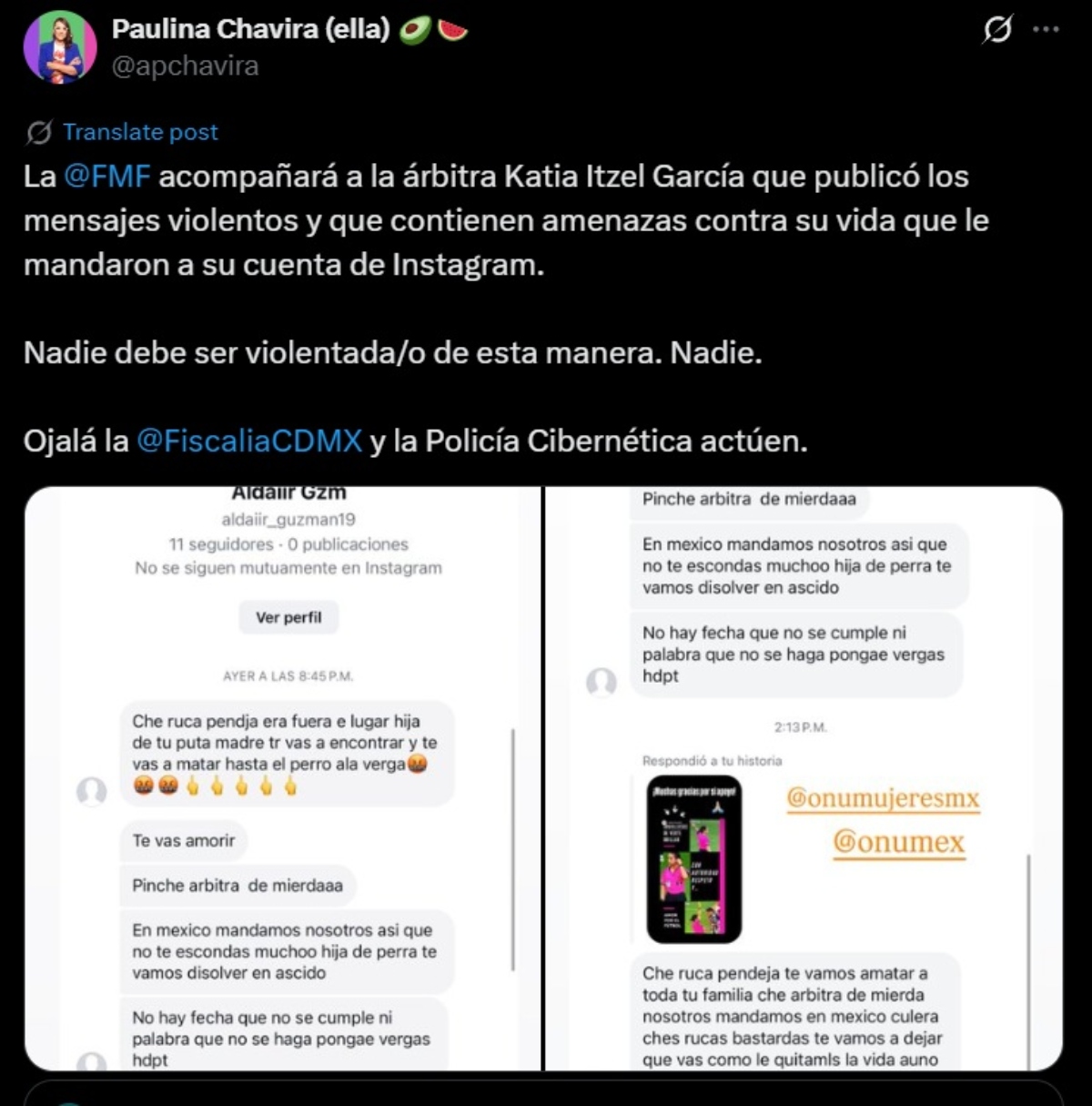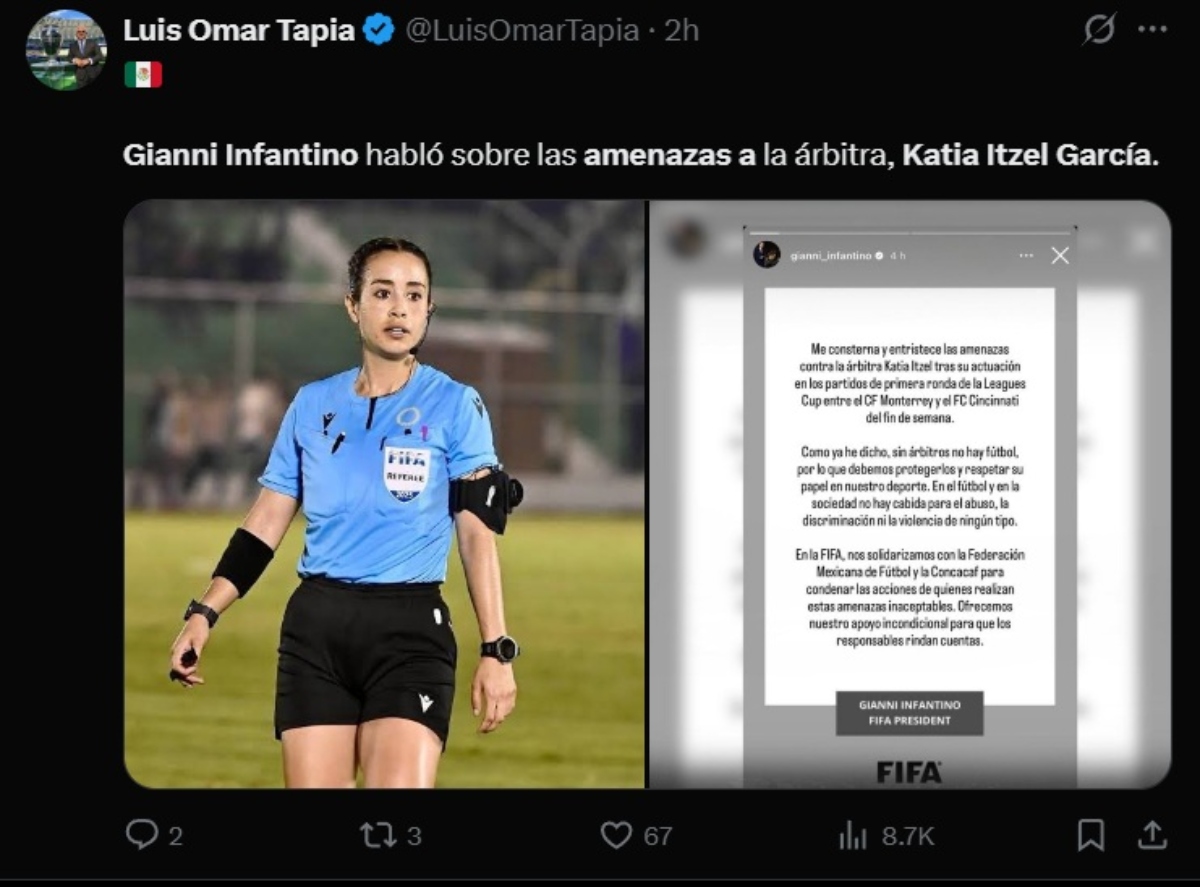International referee Katia Itzel García revealed through her social networks that she received death threats and hate messages after her refereeing work in the match between Rayados de Monterrey and FC Cincinnati, in the Leagues Cup 2025. The controversy arose when he validated a controversial goal by Cincinnati in the 52nd minute, a decision that generated outrage from Monterrey fans and players.
On her Instagram, Katia showed screenshots of the threatening messages, including texts such as: “You are going to die… in Mexico we rule… we are going to dissolve you in acid”… also directed against her family. Faced with this, the whistler launched a strong message: “In Mexico, a country where every day 10 women are murdered and 91 people in total … Total rejection of violence in all spaces!”.
Immediate institutional support

The Mexican Football Federation (FMF), CONCACAF and the Leagues Cup organizers publicly rejected the attacks.
In their statements, they condemned the threats as “shameful and unacceptable” and reaffirmed their commitment to protecting the physical and emotional integrity of referees.
They offered legal accompaniment and security to Katia Itzel García, in coordination with the corresponding authorities.
FMF stated:
“We strongly condemn the acts of intimidation and threats against Katia Itzel García… we will be accompanying her in the process of filing a complaint with the authorities.”
Concacaf added:
“In soccer and in society there is no place for violence, abuse or intimidation of any kind…dialogue and respect must prevail.”
Professional background and context

Katia Itzel Garcia, 32, has been a FIFA referee since 2019.
She was the first woman to referee a Liga MX men’s game in 20 years (March 2024).
She has directed international competitions such as the Women’s Gold Cup 2025, the U-17 Women’s World Cup and the Paris 2024 Olympic Games.
She was honored by UNAM and recently received the National Sports Award 2024.
Katia shared screenshots of the threatening messages
QuéOnnda.com
Reactions and social concern

The case has generated widespread rejection.
Sports analysts and the media stressed that verbal and digital violence against female referees reflects a serious crisis of respect in soccer.
Many agreed that VAR decisions and results do not justify personal threats or threats to the safety of women in their profession.
Human rights organizations and fan networks call for the establishment of effective protection and sanction protocols for cases of digital harassment against referees, especially women.
For more information, visit QuéOnnda.com.























